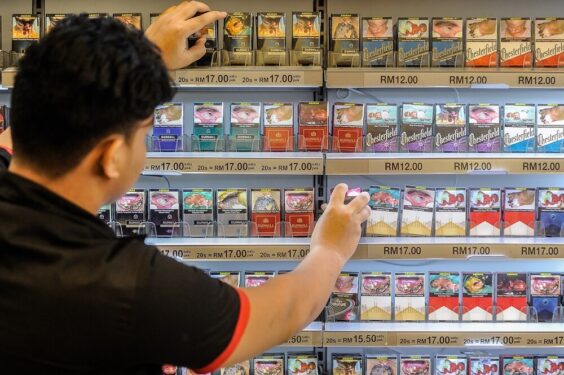By Chee Jo-Ey
SMALL business owners in Malaysia still have limited access to financing despite making up 98% of the business sector. It is unsurprising then that an alternative investment, peer-to-peer (P2P) financing, is gaining traction.
The P2P financing industry in the country has reportedly raised nearly RM377 mil as of June this year, funding over 1,100 small and medium enterprises (SMEs).
P2P financing involves investors lending money to individuals and businesses via P2P platforms. Investors with limited capital can start investing with as little as RM50 in P2P lending while businesses get access to funding without having to go through the stringent requirements set by banks.
FinTech Association of Malaysia committee member Adam Malik believes that the P2P financing industry will continue to scale as many underserved SMEs do not have the requisite years of audited accounts required by traditional financial institutions due to their limited operation tenure and track record.
“More often than not, SMEs are looking for smaller financing amounts that make it less appealing for financial institutions,” he says.
According to Adam, the P2P financing industry in Malaysia has raised more than RM500 mil as of September this year for more than 1,500 SMEs since the first approved P2P platform launch in 2017.
P2P is gaining traction, especially on the demand side, as SMEs require only small working capital to ensure that their cashflow is uninterrupted as well as to expand their business.
On the investor side, 55% of P2P financing investors are below the age of 35, which illustrates that these alternative investments through regulated online platforms are garnering interest amongst a new generation of investors that may be less inclined to invest in traditional asset classes like real estate, stocks, unit trust and bonds.
“P2P platform operators have disclosed that as an industry, 69% of the financing disbursed to SMEs are for amounts not exceeding RM50,000.
“This indicates that the industry is serving a micro-segment of the broader SME base in Malaysia,” Adam adds.
Growing need for P2P financing
Despite only being introduced by the Securities Commission in 2016, the P2P financing platform has already shown significant upward momentum.

According to Funding Societies co-founder and CEO Wong Kah Meng, the P2P financing industry’s disbursal amount has grown from RM212 mil in 2018 to RM520 mil up to September this year – a 150% growth!
“Funding Societies has grown from RM100 mil in disbursements in 2018 to more than RM300 mil in 2019. The figures also serve to highlight Funding Societies’ more than 50% market share dominance in Malaysia,” he adds.
Fundaztic CEO Kristine Ng opines that the P2P industry is still in its infancy stage in Malaysia. The first six registered P2P financing platform operators including Fundaztic only came into being around two and a half years ago.
However, the growth is very commendable and P2P looks set to become a strong alternative funding and investment vehicle for Malaysians as the industry is on its way to cross the RM700 mil mark in disbursements by end-2019.
“Fundaztic focuses on micro, small and new businesses and has been disbursing funding at an average size of RM75,000. We target to serve 1,000 micro, small and medium enterprises by the end of this year,” explains Ng.
Usually, traditional financial institutions assess SME financing applications by using two metrics: creditworthiness and bankability.
Creditworthiness – can the SME commit to the financing repayment? Bankability – the financing amount and tenure applied for may be too small or too short and thus not viable for banks to provide.
Also, many SMEs are not able to provide the necessary collateral and documents required by traditional financial institutions.
Some SMEs are unable to meet the complex requirements of traditional financing or the products offered by these institutions may not be suitable or cannot be ‘customised’ to SME applicants’ needs.
This is where the flexibility of P2P financing in offering shorter-term or lower-amount financing to the SMEs fits in nicely in serving these SMEs.
Some businesses may be viable and are growing but lack the track record or collaterals that conventional lenders or financial institutions require.
The ease of investing and the attractive returns are definitely strong pullers for the continuous growth of the P2P industry.
High returns, high risks
P2P lending may promise higher returns than most traditional investments but investors take on greater risks as well.
Finance blogger KC Lau explains that P2P financing generally promises more than 10% returns but the risk of potential default can deplete investors’ returns if they don’t diversify.
He says the general rules of thumb for investing in P2P lending are to spread your capital equally to several borrowers and to go with the minimum investment amount, say RM50 or RM100 and nothing more.
Lau relates,”I made the mistake of wanting to invest RM1,000 equally in each opportunity. But I was not able to lend RM1,000 to each borrower.
“Some opportunities were taken up in no time and I could only put in RM100 due to high demand.
“In the end, I don’t have an equal investment in each borrower, resulting in an unequal spread. The portfolio was not balanced to reduce my risk.
“ So, use the minimum allocation amount regardless of how much capital you have.
“Due to this limitation, investors can’t scale up the interest income from P2P financing. You will hit the limit when you have lent a substantial amount.”
Rigorous due diligence
B2B Finpal head of business development and operations Er Chiang Chuan says, “We work closely with our collaborative partner to provide assistance during the initial screening and with business performance analytics.
Most issuers on B2B Finpal’s platform are suppliers in the fast-moving consumer goods (FMCG) sector.
Prior to signing up each issuer, B2B Finpal will run a rigorous due diligence and credit assessment which includes anti-fraud checks, litigation search, credit screening and financial review.
Each issuer will be assigned a risk grade which determines the applicable interest rate. The issuer will also be assigned a credit limit according to factors like financial standing, historical business volume and risk level.
B2B Finpal requires a minimum investment amount of RM1,000 to open an account. But the minimum amount an investor can place for each issued note is RM100.
Fundaztic places a lot of emphasis on credit behaviour and sets a very low exposure limit of up to RM200,000 in funding.
“As we focus on small-sized funding and our entry barrier is just RM50, even the smallest investor would be able to diversify and build a portfolio of at least a 100 notes with as little as RM5,000,” says Ng.
Investors are advised to spread their risk thinly and evenly by investing in almost equal amounts in all notes.
If an investor on Fundaztic’s platform has built a portfolio of 100 notes within 12 months and in amounts that do not deviate more than three times from the average investment per note, he or she is entitled to Principal Protect.
Principal Protect is Fundaztic’s assurance to investors that should an investor lose any capital, the platform would bear the losses if all terms and conditions are met.
The minimum investment amount on Fundaztic’s platform is only RM50 and it charges a fee of 1% on the monthly repayments. The fees are only charged upon receipt of monthly repayments.
The default rate for P2P financing platforms in Malaysia ranges from 0.18% to 3.52%.










